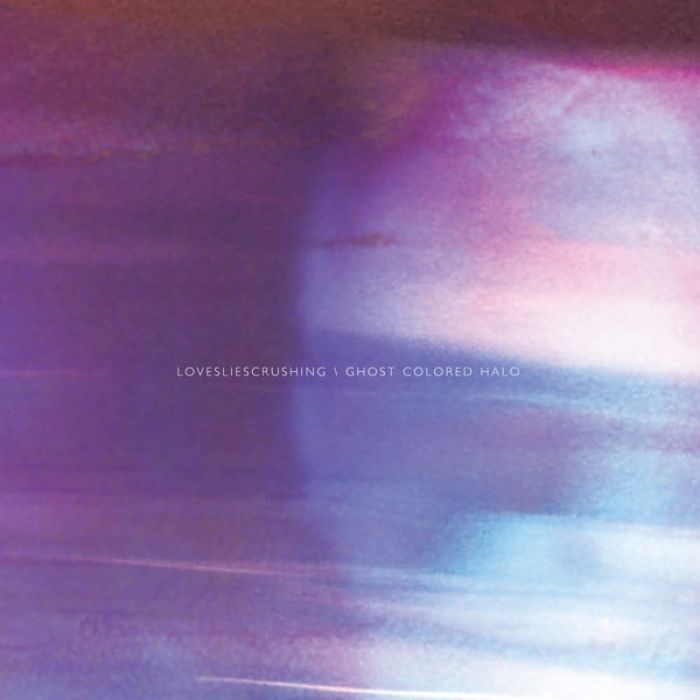Ghost Colored Halo EP by lovesliescrushing (Review)

A fascinating paradox has been at work in the heart of lovesliescrushing’s music for two decades now. On the one hand, their music is loud, overwhelming, and crushing (npi) with its nigh-infinite layers of overdriven and effects-laden guitars. At times, it’s almost painful to listen to on Ghost Colored Halo, particularly on such songs as “Tiger Hunts Alone” with its dulcimer-like tones and feverish swirls of sound, or “Darklit and Crow” and its gloomy, subterranean guitar pulses.
On the other hand, the music, for all of its intensity and density, is never as harsh and eardrum-rupturing as it feels like it should be. Perhaps Melissa Arpin-Duimstra’s wordless vocals, though airy and disembodied, still have enough mass to somehow blunt Scott Cortez’ guitar avalanches. Or perhaps there’s some sort of mutual annhilation going on in the midst of those guitar layers that sets off a chain reaction, softening their edge.
In any case, the paradox means that, even though lovesliescrushing have hardly deviated from the formula they began with on Bloweyelashwish, their music continues to fascinate with each new release. And though their songs’ density never really changes, Ghost Colored Halo’s final two tracks prove the duo simply aren’t all about abusing eardrums with their amped-up shoegazer sound.
“The Wounds That Won’t Heal” is a rather mellow piece by lovesliescrushing standards. Cortez’ sonics, while still dense, hold back from smothering the listener: instead, they swirl around like stormclouds on the horizon with the result being a strangely calm, contemplative space in the midst of potential chaos.
“Ghost Colored” closes the album on an almost spiritual note: Arpin-Duimstra angelic sighs begin tentatively, but by song’s end, have a choral sense about them that gives the song a cathedral-like air. Meanwhile, Cortez’ guitar — or rather, his array of guitar pedals — doesn’t so much crush the listener as push before them, clearing away the weight and darkness of the EP’s earlier material. Together, the duo’s sounds grow brighter and more hopeful, as if emerging from some abyss or long arctic night.